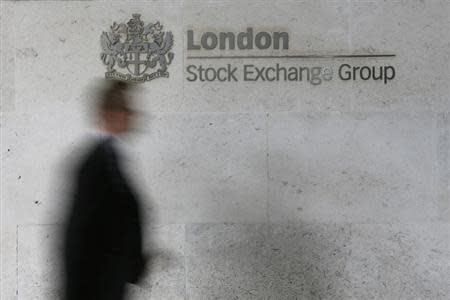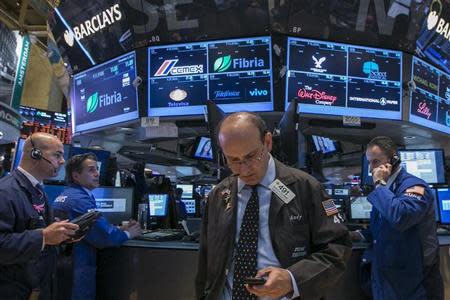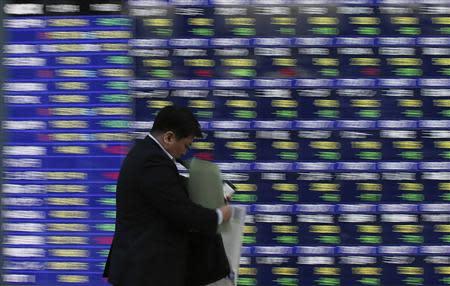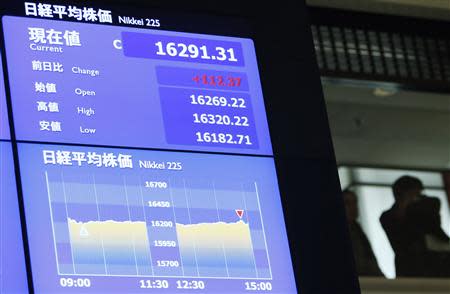Asian stocks, dollar subdued after Wall St losses
By Lisa Twaronite TOKYO (Reuters) - Stocks got off to a lacklustre start and the dollar was on the back foot in early Asian trading on Friday after downbeat results cast a shadow over Wall Street. MSCI's broadest index of Asia-Pacific shares outside Japan was slightly lower, while Australian shares slipped about 0.3 percent. The dollar index, which tracks the greenback against a basket of six major currencies, was last down 0.1 percent at 80.917. The greenback slipped 0.1 percent to 104.26 yen, but remained well off a four-week low of 102.85 set on Monday. Against the euro, the dollar treaded water at $1.3613 (8323 pence). On Thursday, the Standard & Poor's 500 backed away from a record high struck in the previous session, after disappointing earnings from banks including Goldman Sachs and Citigroup Inc, though some noted that the broader impact was limited. "The market has not made much of the news with regard to global growth, though, as oil prices remained broadly unchanged and non-financial stocks broadly outperformed," strategists at Barclays said in a note to clients. U.S. crude futures rose about 0.1 percent to $94.06 a barrel, not far from a two-week peak of $94.64 reached earlier this week after U.S. government data showed a larger-than-expected drop in inventories. Markets were caught off guard last Friday when data showed U.S. jobs growth unexpectedly weakened, but concerns about the health of the world's largest economy were soon dispelled by subsequent upbeat data, including robust consumer spending. Thursday's U.S. data showed the Philadelphia Fed's index of business conditions in the U.S. Mid-Atlantic region fell to its lowest level since April, while consumer prices rose the most in six months in December, in line with expectations. The number of Americans filing new claims for unemployment benefits fell for a second week last week. Meanwhile, the Australian dollar slumped slightly to $0.8816, after it shed more than 1 percent on Thursday to $0.8777 -- a low not seen since August 2010. Traders said good buying interest below 88 U.S. cents should provide some support for now. The Aussie plunged after data showed Australia's economy shed 22,600 jobs in December, when economists had expected a small increase. (Additional reporting by Ian Chua in Sydney; Editing by Shri Navaratnam)












